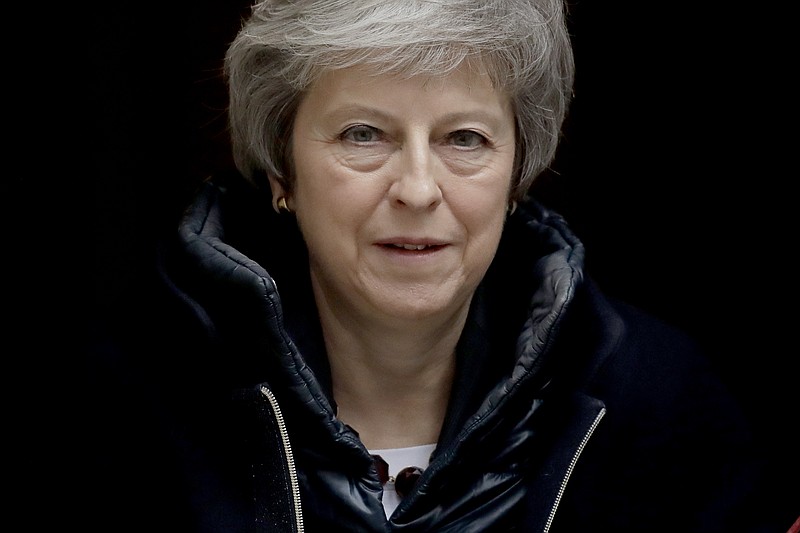STRASBOURG, France - British Prime Minister Theresa May said late Monday she had secured "legally binding" changes to her Brexit deal, following last-minute talks with European Commission President Jean-Claude Juncker in Brussels.
The compromise includes changes that confirm Britain's ability to exit the so-called backstop provision that guarantees an open Irish border.
This language would come as a supplement to the withdrawal agreement that British lawmakers overwhelmingly rejected in January - and are due to vote on again Tuesday.
It guarantees "that the EU cannot act with the intent of applying the backstop indefinitely," said May, after a meeting with Juncker in Strasbourg, where the European Parliament is meeting this week.
She also emphasized that whatever comes after the backstop cannot replicate it.
Juncker, for his part, said the compromise would make clear that the backstop should not be a permanent solution. He expressed optimism that the withdrawal agreement would be approved in time for Britain to leave European Union on March 29, as planned.
However, if the legislation fails again, he warned, "there will not be a third chance."
"There will be no further interpretations of the interpretations and no further assurances on the reassurances," he said.
Shortly before Juncker and May's news conference, David Lidington, one of May's deputies, disclosed the news to British lawmakers.
The text "provides confirmation that the EU cannot try to trap the UK in the backstop indefinitely," he said.
Monday's compromise also includes a joint statement to be added to the political declaration of the future EU-British relationship. It would explain how the EU and Britain can accelerate talks about post-Brexit trade arrangement so that the backstop - designed as an insurance policy in the event of no trade deal - does not need to be triggered.
In addition, the package comes with a British unilateral declaration that would let London quit the backstop on its own if negotiations on a future relationship fail.
May announced that the attorney general would review the compromise Tuesday before deciding on whether to change an earlier ruling that the backstop could permanently trap Britain.
But whether these fresh changes are enough to sway lawmakers remains unclear.
In an initial response, opposition Labour leader Jeremy Corbyn called on lawmakers to reject the deal once again.
"The prime minister's negotiations have failed," he said. "This evening's agreement with the European Commission does not contain anything approaching the changes Theresa May promised Parliament, and whipped her MPs to vote for.
"Since her Brexit deal was so overwhelmingly rejected, the prime minister has recklessly run down the clock, failed to effectively negotiate with the EU and refused to find common ground for a deal Parliament could support."
The Strasbourg talks came shortly after Ireland's Cabinet held a crisis meeting, with Prime Minister Leo Varadkar delaying a trip to the United States to attend the gathering.
Ireland, backed by the rest of the EU, has consistently rejected any proposals to time-limit or weaken the backstop.
However, Juncker said after his meeting with May that his team has been "in constant contact with our Irish friends over the past days and over the last hours," and that Varadkar "would be prepared to back this approach in the interests of an overall deal."
If May loses Tuesday, however, Parliament will hold two more votes Wednesday and Thursday on whether Britain should leave the EU without a deal, and whether it should extend the Brexit negotiations.

